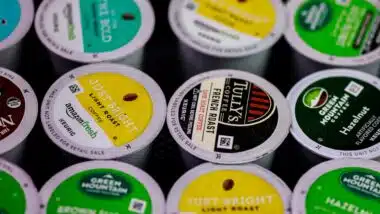
California’s unfair competition law is meant to protect consumers and businesses from being damaged by issues like false advertising or other anti-competitive behavior. Some industries are more well-known than others for issues with false advertising, such as the dietary supplements industry.
What Is Unfair Competition?
Essentially, unfair competition is the idea that certain deceptive or wrongful business practices by a business can cause economic injury to other businesses or consumers.
Types of unfair competition include:
- False advertising
- “Bait and switch” selling practices
- Unauthorized substitution of one brand of goods for another
- Use of confidential information by a former employee to solicit customers
- Theft of trade secrets
- Breach of a restrictive covenant
- Trade libel
- The false representation of products or services
While the Federal Trade Commission (FTC) was established by Congress to protect consumers from these kinds of deceptive practices, unfair competition law is typically administered at a state level.
What Is California’s Unfair Competition Law?
Under California Business and Professions Code 17200, “unfair competition” includes “any unlawful, unfair, or fraudulent business act or practice,” or “false, deceptive, or misleading advertising.”
California’s unfair competition law covers a number of these kinds of anti-competitive practices, including:
- Selling products or services at different prices in different places within the state of California, a practice referred to as “locality discrimination”
- Selling a product or service below cost in order to destroy competition
- Offering secret rebates to only certain customers at the exclusion of others
- “Bait and switch” advertising, in which a product is advertised at a cheap price but only higher-priced options are actually available
 Dietary Supplements Unfair Competition Examples
Dietary Supplements Unfair Competition Examples
The Food and Drug Administration (FDA) regulates the labeling of drugs and supplements, and false claims advertising is prohibited under FDA law as well as California state law. However, it should be noted that dietary supplements are considered “foods” rather than “drugs,” and therefore do not have to undergo the FDA’s stringent pre-market testing for drugs.
Dietary supplement manufacturers that include a health claim on the labeling are required by law to also include a disclaimer that the product has not been evaluated by the FDA, and is not intended to “diagnose, treat, cure or prevent any disease.”
Companies, including dietary supplements companies, are continually coming under fire for violating false advertising laws. Dietary supplements are required to include labels with the following information:
- Statement of the product’s identity
- Amount of the dietary supplement
- Nutrition labeling
- Ingredient list
- Name and place of business of the manufacturer, packer, or distributor
Not only must all of this information be included, but it also must be straightforward, clear, and accurate. Companies are not allowed to include misleading information—for instance claims about a product’s effects or abilities that are not actually true.
At this point, it’s so common to see false claims on products that we may have become accustomed to them. Common examples of false claims advertising include:
- “A More Natural Way to Cure Diabetes”
- “Proven To Be An Effective Weight Loss Method”
- “No Side Effects”
- “Reduces Blood Sugar Levels”
- “Cures Post Traumatic Stress Disorders”
- More
A growing number of consumers claim that these kinds of labels are sometimes included on supplement labels despite there being no evidence that the products actually have these results.
A number of dietary supplements may have been mislabeled in a way that is misleading to consumers, such as the following:
- Absorb Health Oxiracetam
- AddieUp
- Andarine
- CBD Miracle Patch
- Capris Associates Avocado Oil
- Inspired Nutrition Skin Defense
- NutriSuppz Ultra Blood Sugar
- Simply Skinny Pollen by Down to Earth Supplements
- Others
A more complete list of dietary supplements that have been allegedly mislabeled can be found on our investigation page.
Dangers of Dietary Supplement False Advertising
In addition to the illegality of making false claims about supplements, consuming dietary supplements that have been mislabeled may be dangerous and lead to health consequences for consumers. Several people who took USP Labs supplements advertised as aids for building muscle and losing weight wound up in the hospital, with some requiring liver transplants or dying, due to a lack of regulations pertaining to the supplements’ labels.
Though California’s Unfair Competition Law does help ensure that consumers get an accurate picture of the product they are purchasing, some users may not be aware of the significant differences in the requirements made of drugs versus supplements.
People who use dietary supplements should be aware that they are not the same as drugs. These supplements have not received FDA approval, and therefore cannot bear the “drug” name and cannot be said to cure or treat conditions.
The American Cancer Society explains that the FDA considers drugs to be unsafe until they are proven to be safe. The safety of drugs is determined through rigorous clinical trials, conducted on people who volunteer to participate. According to the American Cancer Society, the FDA requires that there be “substantial evidence” that a drug is safe.
This process applies for each intended use, says the American Cancer Society. Some drugs have multiple uses, and the drugs must go through clinical trials to determine safety for each intended use, and the drug must be approved separately for different uses.
However, supplements do not go through the same rigorous testing. Many supplements may claim to support health in various ways, but are barred from making specific claims about their abilities to treat or cure.
Additionally, some of the other labeling requirements that consumers may be used to seeing in association with drugs do not necessarily apply to supplements. Drug packaging must include information that lays out the conditions that they have been proven to treat; any known side effects, even if they are rare; possible interactions with other drugs that could pose a risk to human health, and circumstances under which using the drug would be unsafe and could pose a risk to patient health.
When companies do not accurately reflect the ingredients in the supplement on the label, they may be exposing consumers to unknown dangers. According to laws regarding supplement regulation, manufacturers do not need to prove that these products are safe for human consumption. Instead, it is up to the FDA to gather evidence showing that the products are not safe to be consumed.
Between 2007 and 2016, 746 supplement brands that had been adulterated were identified by the FDA. However, it is often difficult for the FDA to get these mislabeled products removed from store shelves. While the agency can send warning letters to the manufacturers and issue voluntary recall notices, these steps are not always effective.
Of the 746 identified products, only 360 were removed from the market. In some cases, it may be more effective for affected consumers to hire attorneys and file lawsuits against the manufacturers and retailers responsible for misrepresenting these products. Class action lawsuits may be one way to get the attention of these retailers and convince them to represent their products accurately.
Finding Unfair Competition Lawyers
A number of major lawsuits have been filed over false advertising, some resulting in major payouts for consumers.
If you have been affected by violations of California’s unfair competition law such as false advertising issues, you may be able to file a lawsuit and pursue compensation. Filing a lawsuit can help you regain some kind of compensation, as well as hold companies responsible for their actions.
Filing a lawsuit can be a daunting prospect, so Top Class Actions has laid the groundwork for you by connecting you with experienced unfair competition lawyers. Consulting an experienced attorney can help you determine if you have a claim, navigate the complexities of litigation, and maximize your potential compensation.
Join a Free California Supplements Class Action Lawsuit Investigation
If you live in California and purchased a dietary supplement with a label that touted health claims you believe may be false and misleading within the last four years, you may have a legal claim.
This article is not legal advice. It is presented
for informational purposes only.
ATTORNEY ADVERTISING
Top Class Actions is a Proud Member of the American Bar Association
LEGAL INFORMATION IS NOT LEGAL ADVICE
Top Class Actions Legal Statement
©2008 – 2026 Top Class Actions® LLC
Various Trademarks held by their respective owners
This website is not intended for viewing or usage by European Union citizens.















5 thoughts onDietary Supplements: How Does California’s Unfair Competition Law Protect You?
Please add me
Please add me
yes please add me to the list
Yes please add me
Please add me, thank you!